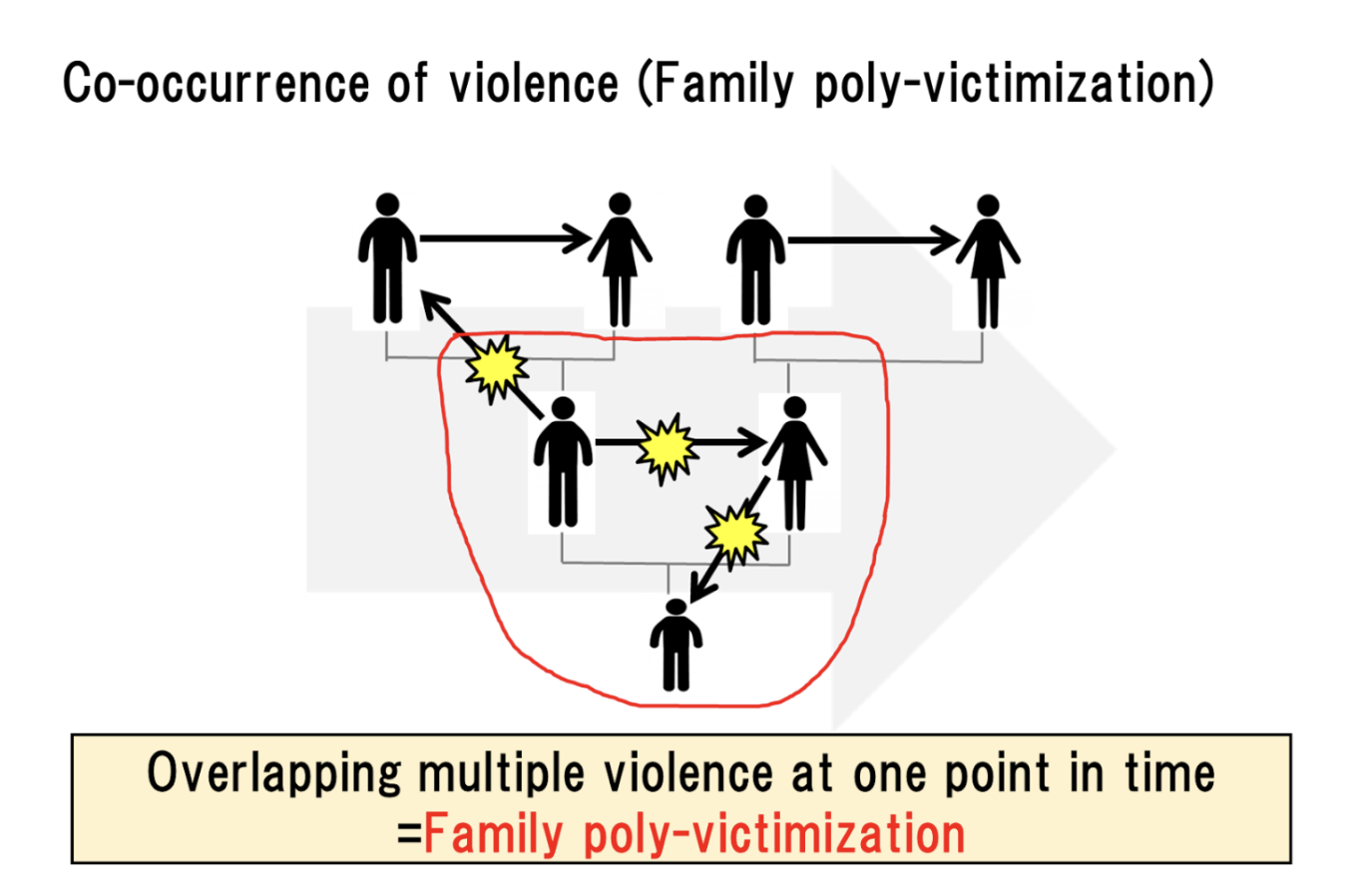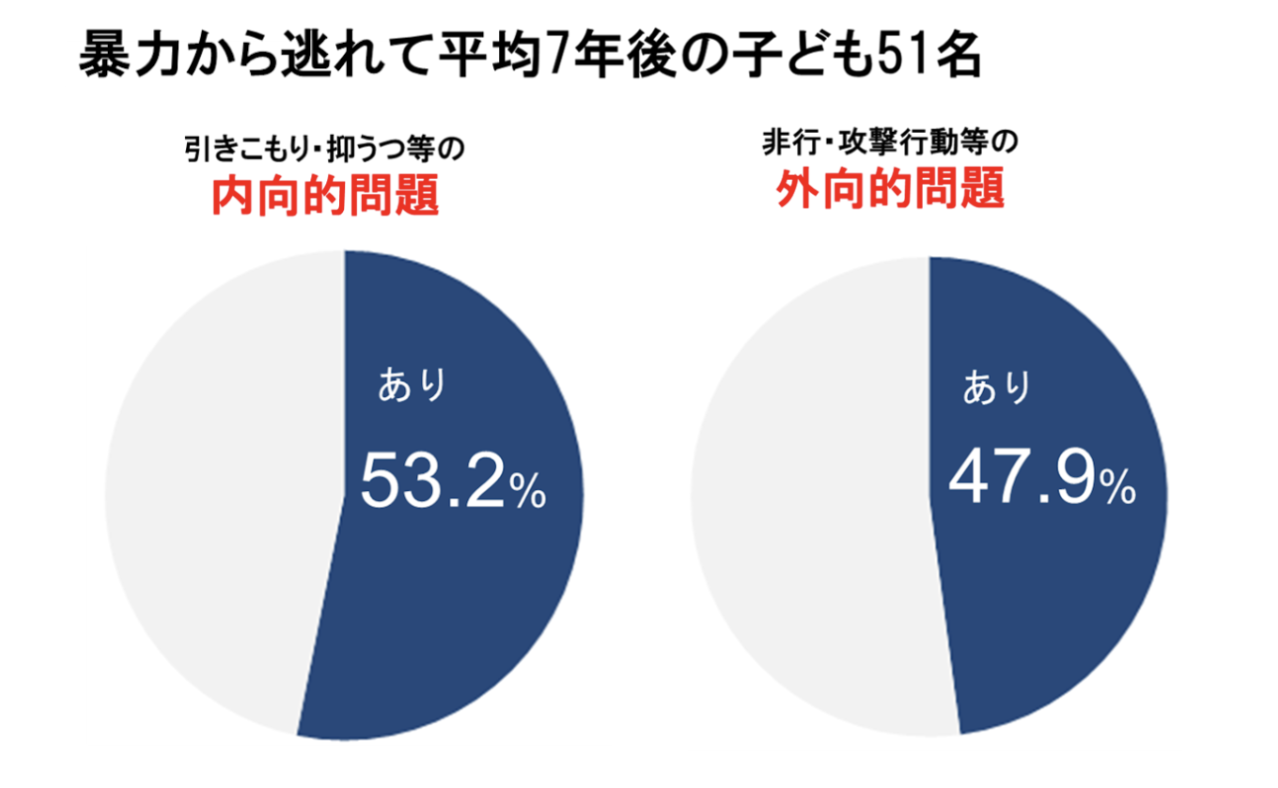Mothers' Experiences of Violence Victimization and Perinatal Mental Health and Parenting Behaviors
From 2013 to 2021, we conducted research on the experiences of violence among pregnant women and its impact on their perinatal mental health and parenting behavior. The evidence gathered has been utilized in child abuse prevention programs by the Tokyo Metropolitan Government and local municipalities.
The prevalence of domestic violence (DV) among pregnant women is approximately 15%. When including childhood abuse experiences, about half of pregnant women have experienced some form of violence either currently or in the past. Additionally, one in five mothers reported engaging in maltreatment/abusive parenting toward their infant such as yelling, throwing objects, or leaving their baby alone for long periods (maternal-infant abuse). It was found that pregnant women who experienced DV were 2 to 3 times more likely to engage in infant abuse after childbirth, compared to those who had not experienced DV. This rate increased towards the third month postpartum.
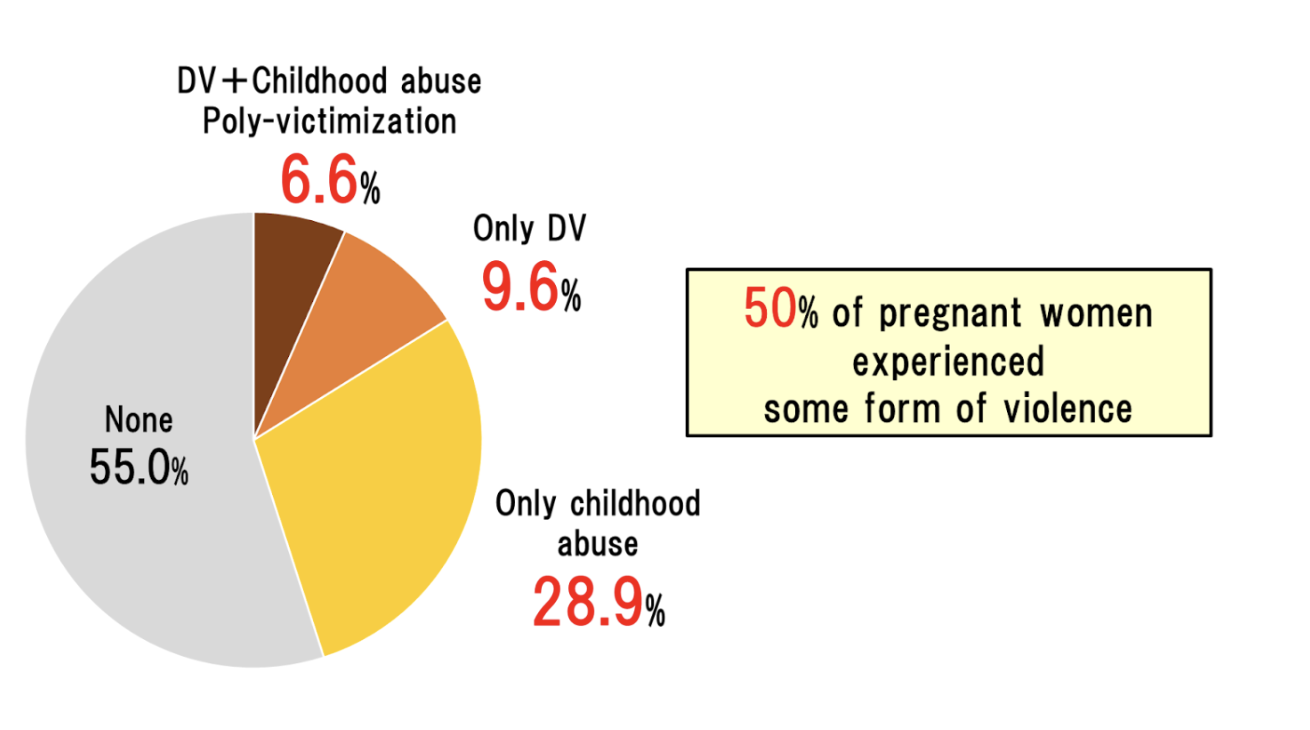
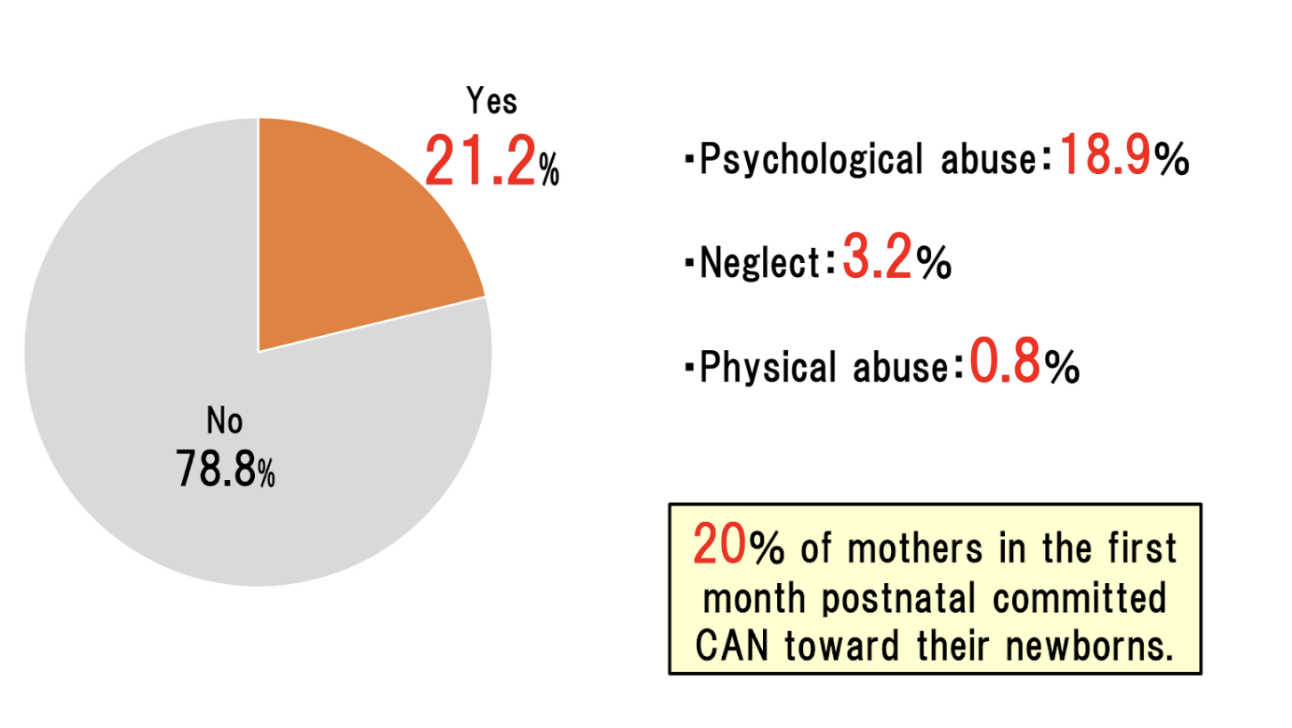
■ Domestic Violence during Pregnancy and Maternal-infant Abuse
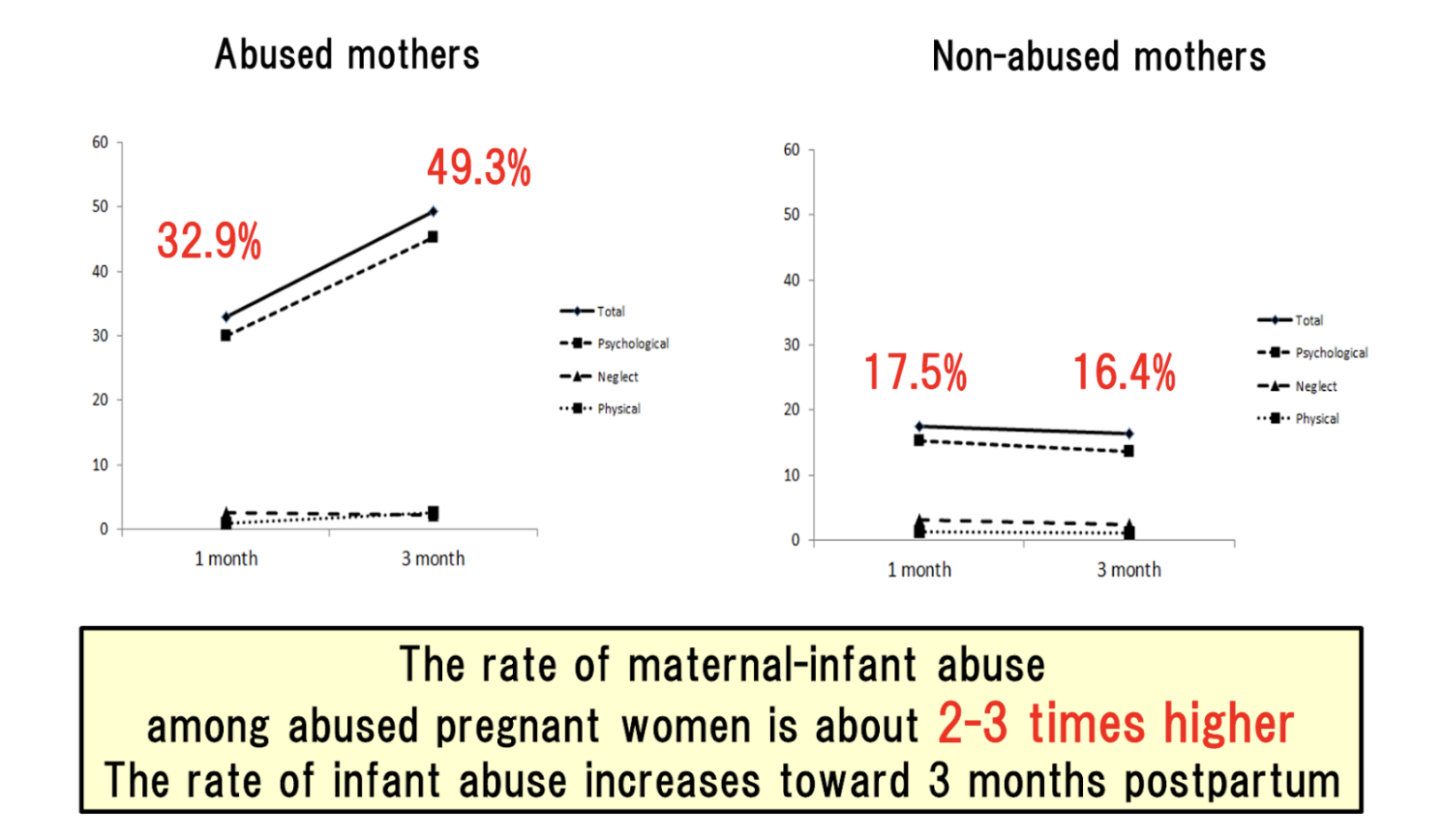
It has been demonstrated that experiencing domestic violence (DV) during pregnancy can contribute to various adverse outcomes in perinatal mental health, including difficulty in feeling joy about the pregnancy, perinatal depression, and maternal-infant bonding failures (a lack of affection or rejection of the baby). Additionally, the relationship between DV during pregnancy and subsequent maternal-infant abuse has been mediated by the mother's hostile attributions/feelings against the baby’s problematic behaviors (for instance, interpreting the baby’s crying as "making fun of me" or "trying to annoy me").
These findings underline the importance of early detection of maternal experiences of violence during pregnancy and the need for comprehensive support to prevent both perinatal mental health problems and child abuse. It is especially critical that mothers who have experienced DV be assessed not only for postpartum depression and bonding failures but also for hostile feelings towards their infants, with proper intervention provided as necessary.
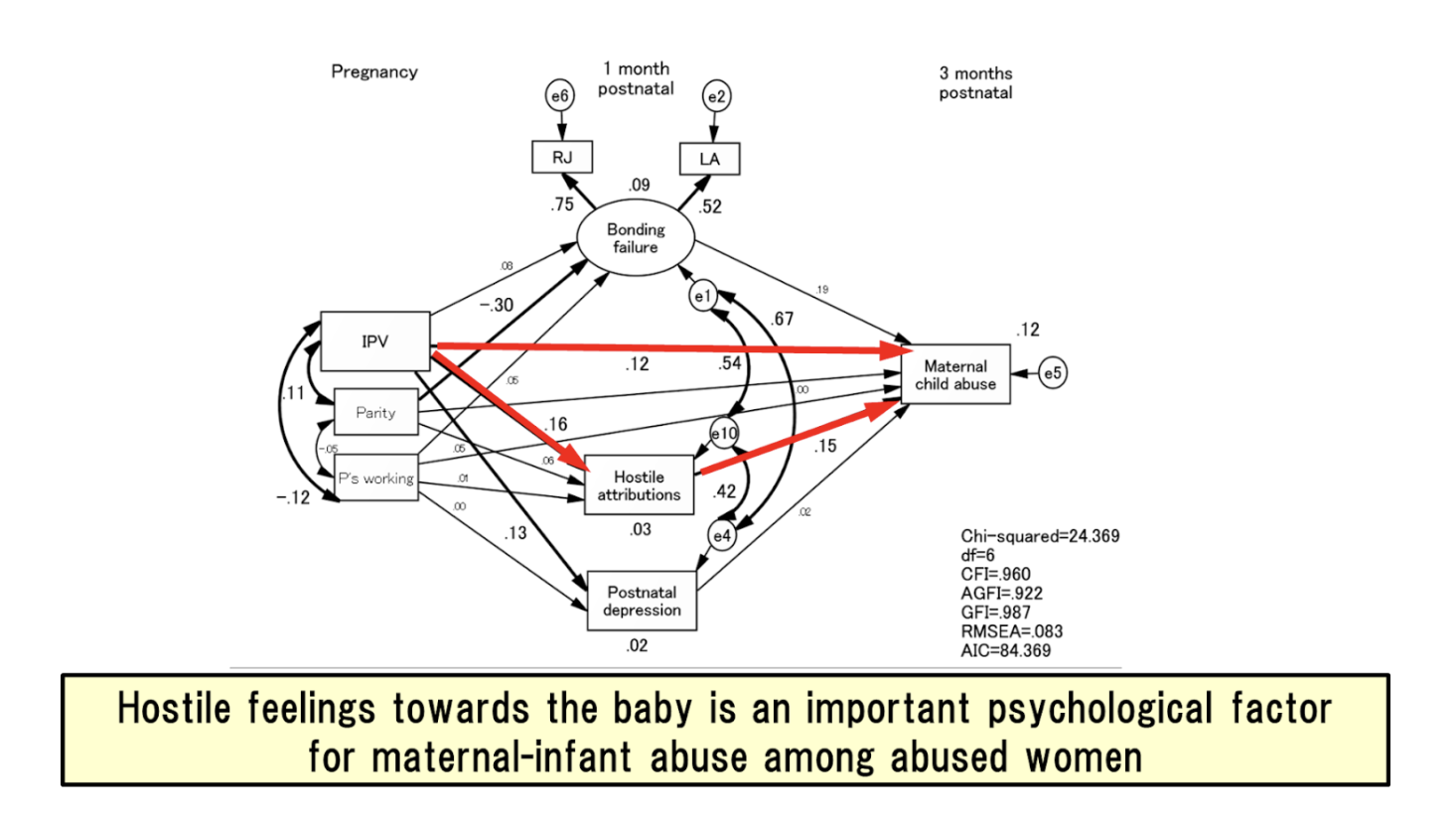
[Paper]
Kita S, Chan KL, Tobe H, Hayashi M, Umeshita K, Matsunaga M, Uehara N, Kamibeppu K. (2021). A follow-up study on the continuity and spillover effects of intimate partner violence during pregnancy on postnatal child abuse. Journal of Interpersonal Violence, 36(13-14), NP6904-NP6927.
Kita S, Tobe H, Umeshita K, Hayashi M, Kamibeppu K. (2021). Impact of intimate partner violence and childhood maltreatment on maternal-infant maltreatment: A longitudinal study. Japan Journal of Nursing Sciences, 18(1), e12373.
Kita S, Hayashi M, Umeshita K, Tobe H, Uehara N, Matsunaga M, Kamibeppu K. (2019). Intimate partner violence and maternal child abuse: The mediating effects of mothers’ postnatal depression, mother-to-infant bonding failure, and hostile attributions to children’s behaviors. Psychology of Violence, 10(3), 279-289.
Kita S. Umeshita K, Tobe H, Hayashi M, Kamibeppu K. (2019). Intimate partner violence, negative attitudes towards pregnancy, and mother-to-fetus bonding failure among Japanese pregnant woman. Violence and Victims, 34(3), 536-547.
Kita S, Haruna M, Matsuzaki M, Kamibeppu K. (2020). Does antenatal social support affect the relationships between intimate partner violence during pregnancy and perinatal mental health? Violence Against Women, 26(6-7), 573-589.
Kita S, Haruna M, Yamaji M, Matsuzaki M, Kamibeppu K. (2017). Association of mental and behavioral problems among children exposed to intimate partner violence and visits with their fathers who perpetrated the violence. Open Journal of Nursing. 7(3), 361-377.
Kita S, Haruna M, Matsuzaki M, Kamibeppu K. (2016). Associations between intimate partner violence (IPV) during pregnancy, mother-to-infant bonding failure, and postnatal depressive symptoms. Archives of Women’s Mental Health, 9(4), 623-634.
Kita S, Kataoka Y, Porter SE. (2013). Prevalence and risk factors of intimate partner violence among pregnant women in Japan. Health Care for Women International, 35(4), 442-457.
■Development of a Screening Tool for DV during Pregnancy
Early detection of domestic violence (DV) during pregnancy is crucial. To address this, we developed a very simple and easy-to-answer 2-item screening tool, the Japanese version of the Woman Abuse Screening Tool (WAST-Short), designed for use on the initial prenatal check-up forms. This screening tool is currently being implemented in several municipalities and hospitals.
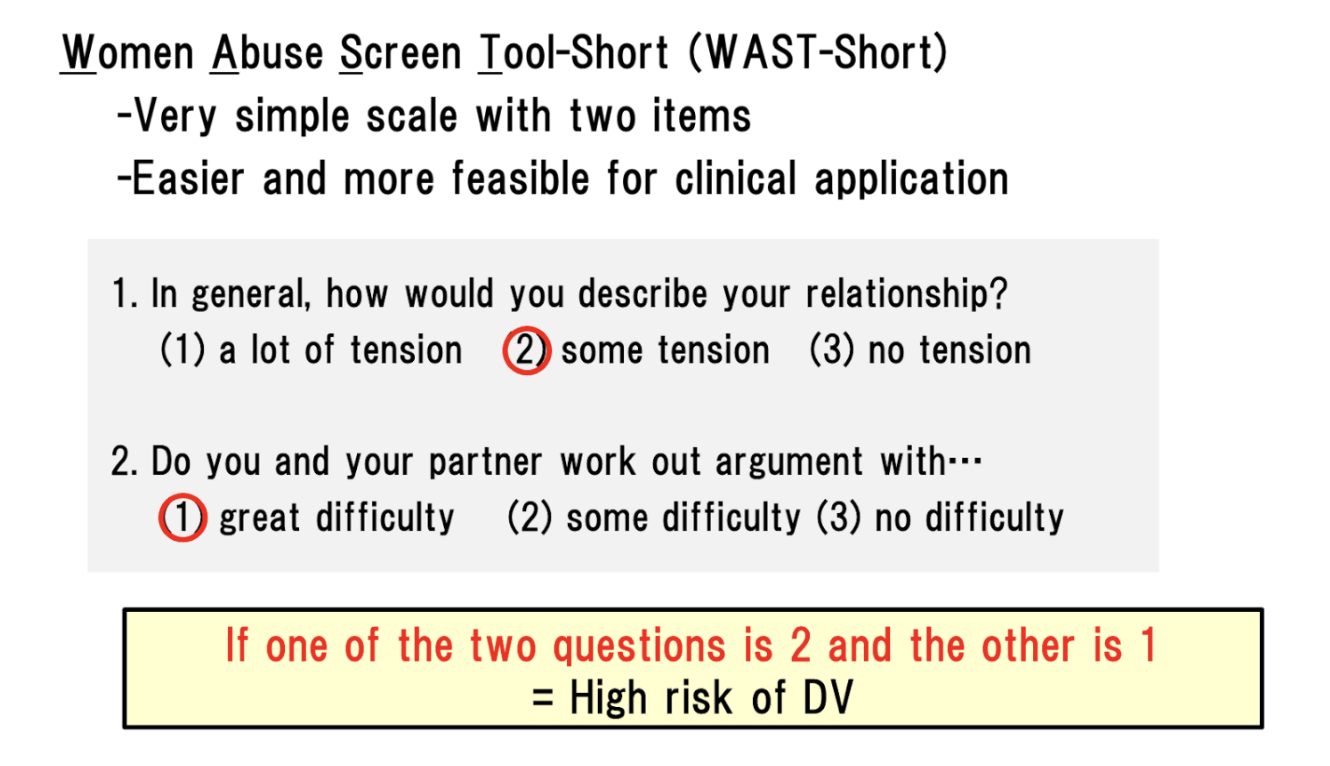
[Paper]
Kita S, Haruna M, Hikita N, Matsuzaki M, Kamibeppu K. (2017). Development of the Japanese version of the Woman Abuse Screening Tool-Short. Nursing and Health Sciences, 19(1), 35-43.

